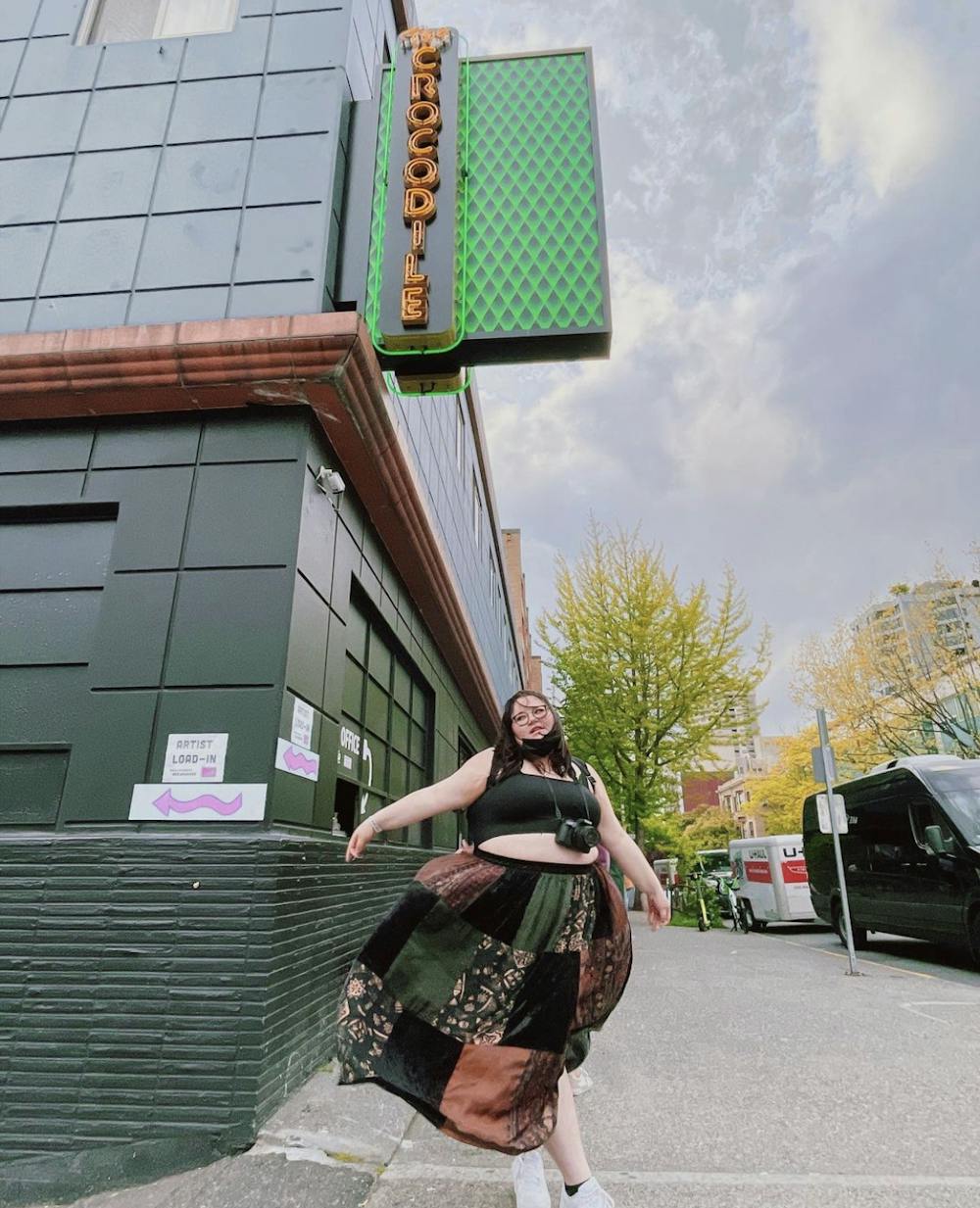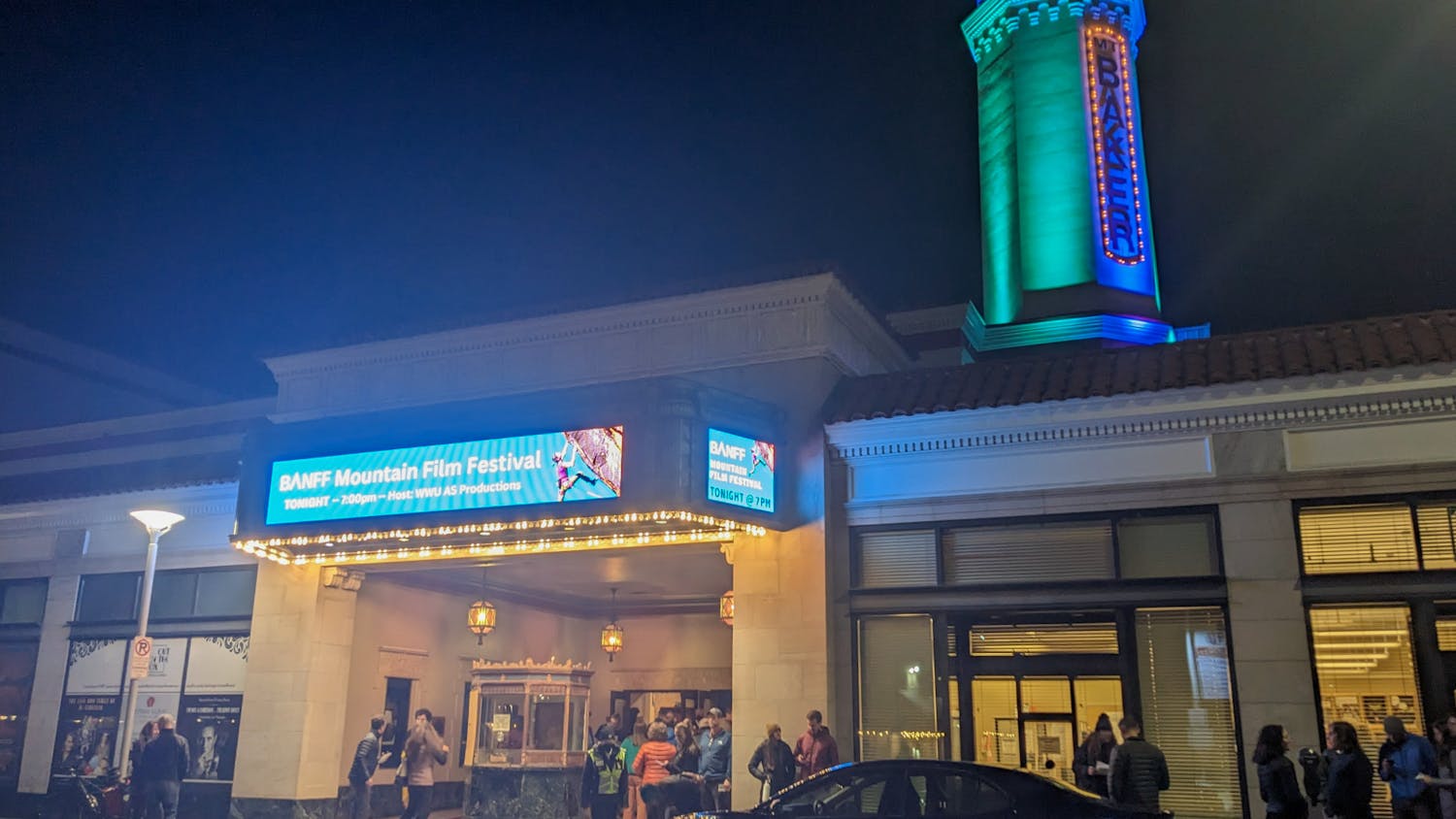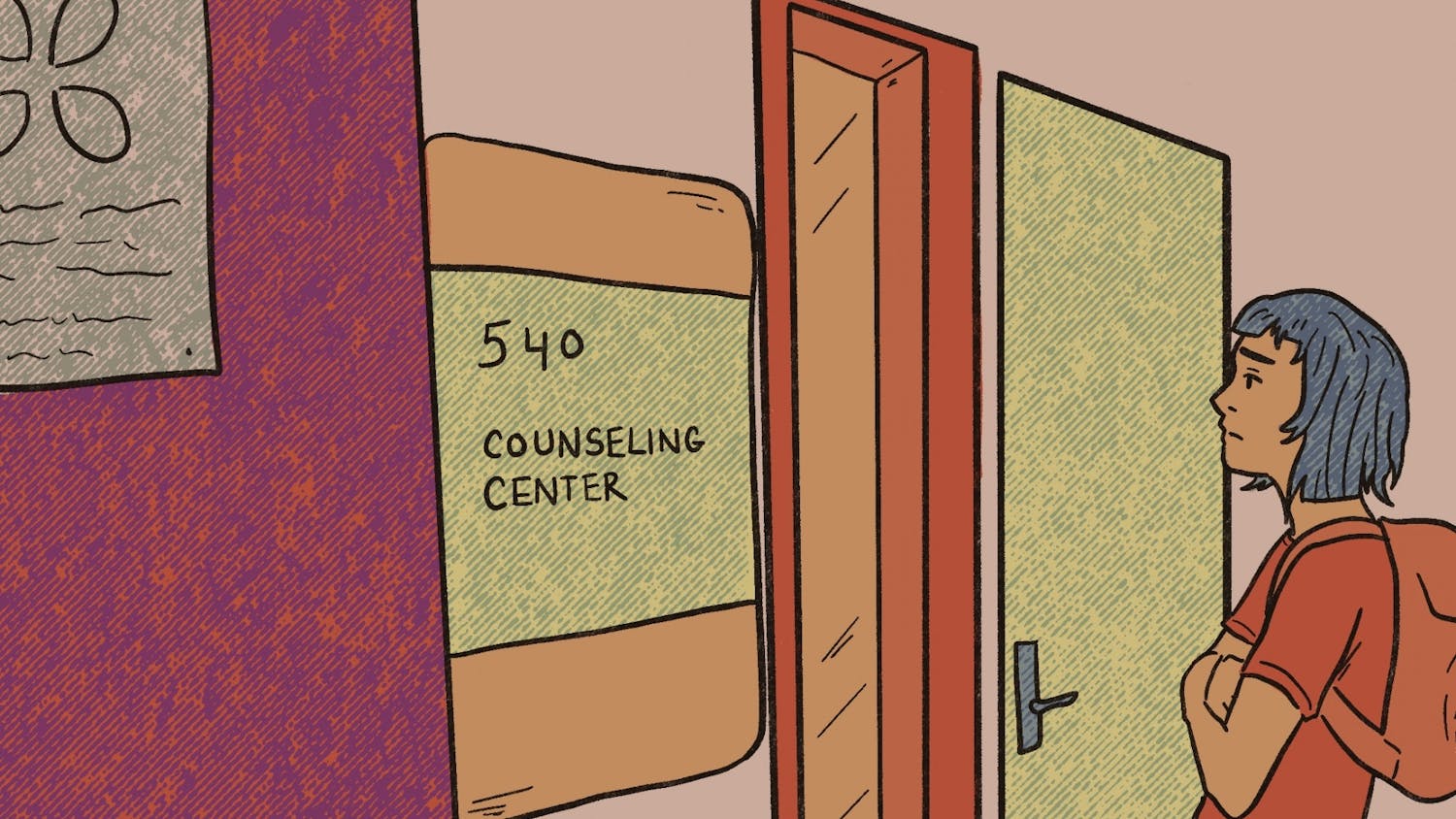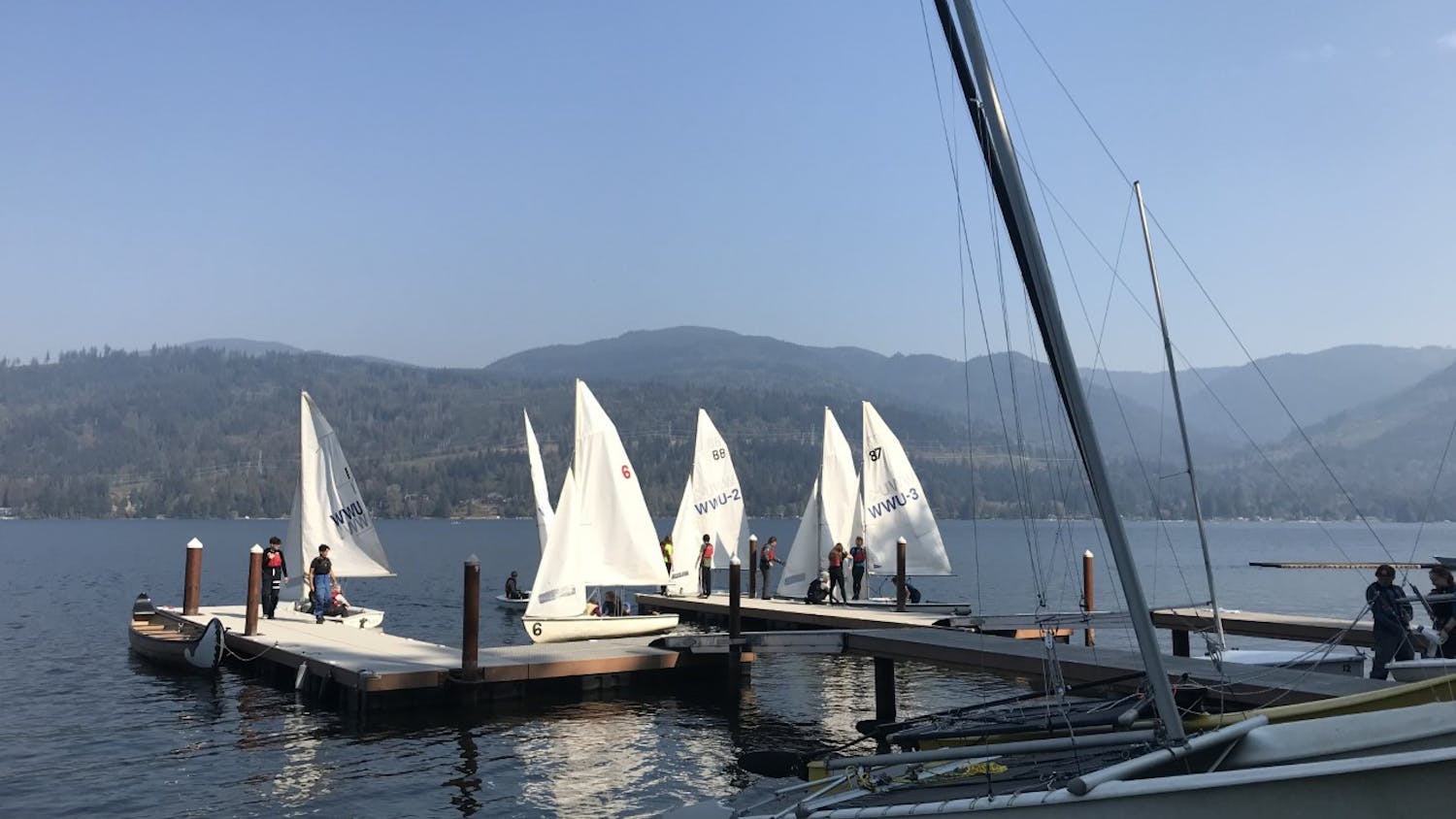Sweaty bodies pack a room filled with dizzying, strobing lights and bone-rattling bass. Amidst this chaos, Madison Joy LeFever captures images — fleeting moments between lighting cues and blackouts that somehow encapsulate entire evenings in one still frame.
LeFever is a 21-year-old Bellingham-based creative. Her many titles include playwright, director, photographer, composer, singer and songwriter.
LeFever got her start in photography just a few years ago during her first year at Western Washington University. What stemmed from taking portraits of her sister has blossomed into consistent music photography gigs.
“I went to a house show the summer of my sophomore year at Blue Bird [House]. I saw someone taking photos and that’s kind of what sparked my interest in photography,” LeFever said.
Over the past few years, LeFever has gained popularity and a new sense of self. In September, she had her biggest shoot yet, photographing folk-pop singer Lizzy McAlpine in Chicago. LeFever has also amassed over 2,000 followers on Instagram.
“I didn’t know I could make a name for myself. I wasn’t trying to make a name for myself. I just wanted to be included,” LeFever said.
Growing up, LeFever was often told she couldn’t be an artist because it wasn’t realistic. Through years of mental health struggles, LeFever has found her art to be an outlet she deeply cherishes.
“I’m really proud of my ability to be gracious with myself. Theatre has allowed me to make sense of my trauma and the way that I treated people,” LeFever said. “I used to be a really stubborn person that was upset and angry. A lot of my art is rooted in healing myself while also healing my inner child.”
LeFever credits her father and sister for inspiring her work.
“My dad passed away when I was 13 years old. He was one of the kindest, funniest human beings I've ever met in my life,” LeFever said. “He was a drug counselor. His whole entire job was helping people heal their wounds. A lot of my work is rooted in him, especially my humor.”
LeFever, feels a similar sense of connection and gratitude toward her sister; she said she wouldn’t be who she is today without her.
Autumn Marceau, artistically known as GLITCHLETTE, is a Bellingham-based music producer and another influence for LeFever. They have worked together many times, including during portrait sessions for Marceau.
“People underestimate the skill that it takes to do good live show photography,” Marceau said. “It's more than just having to snap the photo at the right time. It's more than just being lucky. It's knowing what to look for and the ability to read the room and find where the center of the energy is. [LeFever] has a really intuitive way of capturing the energy of a moment. It's the representation of what it was like to be there.”
In her concert photography work, LeFever has learned the industry is very fast-paced. She works hard to meet the demands of touring artists, often returning edited photos the same night they were taken.
“I pride myself on having such a quick turnaround with my work,” LeFever said.
In her portrait work, Marceau commends LeFever’s eye for subject beauty.
“She does a great job making sure that you're looking good, but then it's also still artistically composed. She finds that medium between not just showing the beauty of this person, but showing the beauty of the subject within the greater context of a piece of art,” Marceau said. “She makes people into art.”
As LeFever has gained notice, she has also experienced new barriers to overcome as an artist. As a woman in photography, LeFever knows she is already at a disadvantage.
Desiree Erdmann, a fifth-year visual journalism student at Western and rising concert photographer, can attest to the lack of women in the photography world.
“Over my five years of college now, I have regularly been the only woman photographer or one of two women on an editorial board,” Erdmann said.
On top of being a woman in a male-dominated industry, LeFever is a plus-sized, queer woman. LeFever believes that fatphobia is downplayed in the art and music industries. Regardless, LeFever feels the effects of it.
“The reality is that I walk into a room and the first thing that people recognize about me is my body,” LeFever said. “I’m completely demoralized as a human being because of my size. Even for me, it's a really hard thing to break down.”
Her response, aside from endlessly working her hardest, is simple.
“[Plus-size] people exist everywhere, and they deserve the same amount of respect that you give somebody that you find attractive. Just because you find somebody attractive, doesn't mean that they're the only person that deserves respect,” LeFever said.
Erdmann believes marginalized groups can break barriers by banding together.
“If you're the only person who looks like you in the room, whether it's gender, race, sexuality, anything, it's really hard to be fully who you are. I think the best way to support each other is for us to just start [shooting photos] and being the presence in the room,” Erdmann said.
LeFever’s personal motivational mantra is “Take what you want. If you want something, what's stopping you from getting it?”
Erdmann and LeFever both encourage curious artists to take the plunge and jump into their art.
“You can't create good art until you start creating bad art,” Erdmann said. “It is very empowering to push your own boundaries and keep doing what you want to do.”






